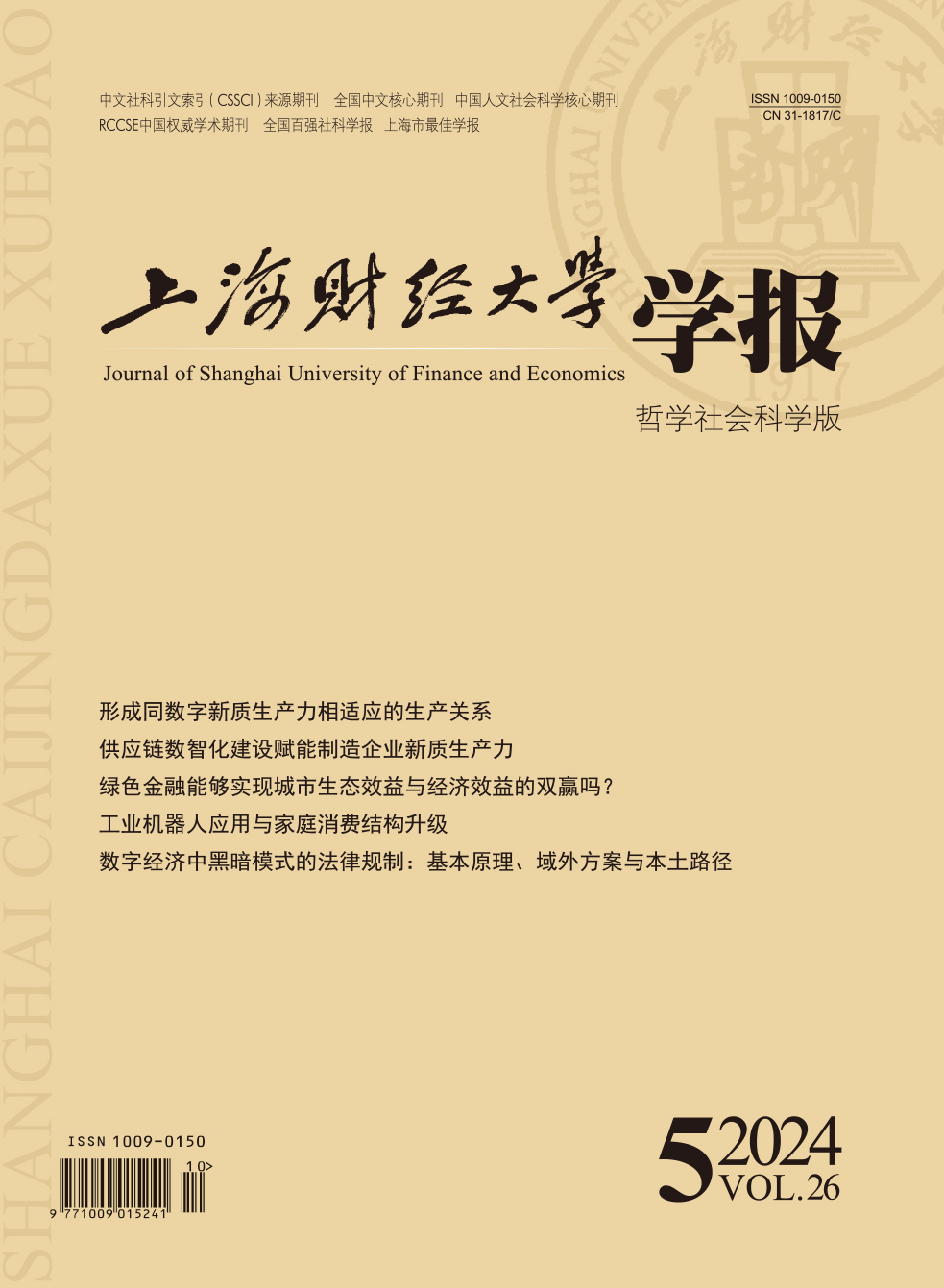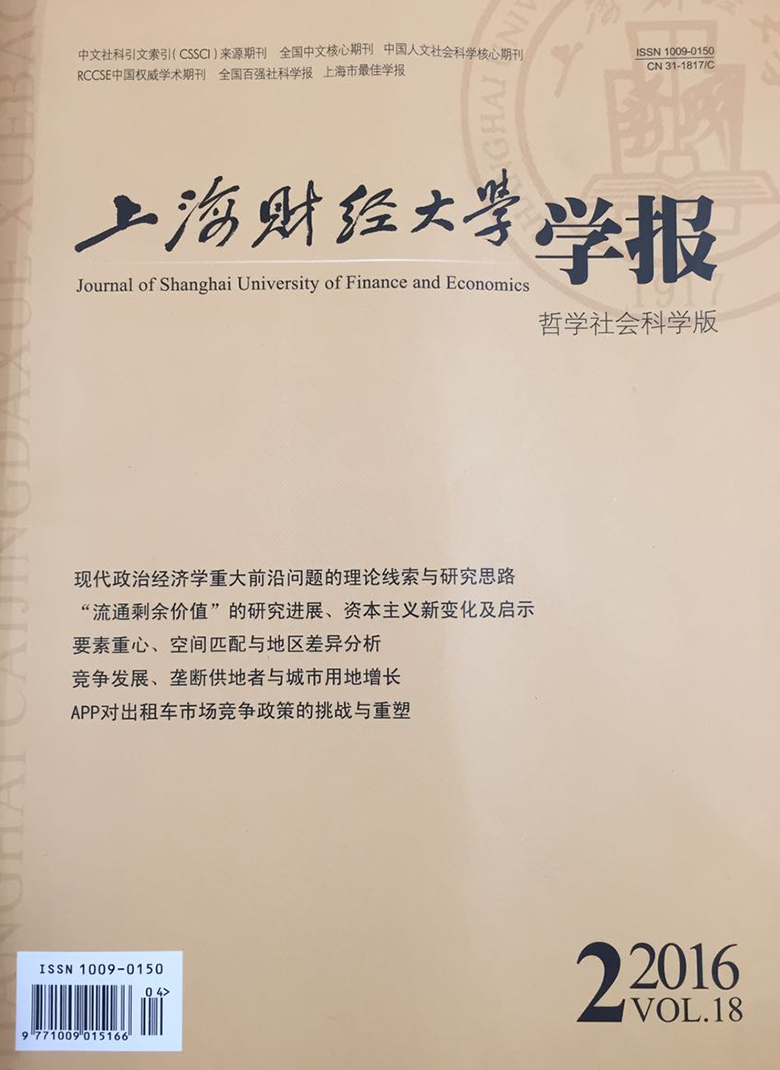1 郭 庆旺, 贾 俊雪. 公共教育政策、经济增长与人力资本溢价. 经济研究, 2009 (10)
2 李实李文彬中国教育投资的个人收益率的估计?北京:中国社会科学出版社1994
3 宋 冬林, 王 林辉, 董 直庆. 技能偏向型技术进步存在吗?——来自中国的经验证据. 经济研究, 2010 (5)
4 徐 舒. 技术进步、教育收益与收入不平等. 经济研究, 2010 (9)
5 张 车伟. 人力资本回报率变化与收入差距:"马太效应"及其政策含义. 经济研究, 2006 (12)
6 张 军, 吴 桂英, 张 吉鹏. 中国省际物质资本存量估算:1952-2000. 经济研究, 2004 (10)
7 Acemoglu D. Patterns of Skill Premia. The Review of Economic Studies, 2003, 70(2): 199–230
8 BartelA. P.LichtenbergF. R.The Comparative Advantage of Educated Workers in Implementing New TechnologyThe Review of Economics and Statistics,19871111
9 BlonigenB. A.SlaughterJ.Foreign Affiliate Activity and U.S. Skill UpgradingThe Review of Economics and Statistics2001832362376
10 Bound J., Johnson G.. Changes in the Structure of Wages in the 1980s: An Evaluation of Alternative Explanations. The American Economic Review, 1992, 82(3.): 371–392
11 Caselli F., Coleman Ⅱ W. J.. The World Technology Frontier. The American Economic Review, 2006, 96(3): 495–522
12 Chang Y., Hornstein A.. Capital-skill Complementarity and Economic Development. Seoul National University Working Paper, 2007
13 Davis S. J.. Cross-Country Patterns of Change in Relative Wages. NBER Working Paper No.4085, 1992
14 Duffy J., Papageorgiou C., Perez-Sebastian F.. Capital-Skill Complementarity? Evidence from a Panel of Countries. The Review of Economics and Statistics,, 2004, 86(1): 327–344
15 FallonP. R.LayardP. R. G.Capital-skill Complementarity, Income Distribution and Output AccountingThe Journal of Political Economy,19758324279301
16 Flug K., Hercowitz Z.. Equipment Investment and the Relative Demand for Skilled Labor: International Evidence. Review of Economic Dynamics, 2000, 3(3): 461–485
17 GoldinC.KatzL. F.The Origins of Technology-skill ComplementarityThe Quarterly Journal of Economics,19981133693732
18 Griliches Z. Capital-skill Complementarity. The Review of Economics and Statistics, 1969, 51(11): 465–468
19 Katz L. F., Murphy K. M.. Changes in Relative Wages, 1963-1987: Supply and Demand Factors. The Quarterly Journal of Economics, 1992, 107(1): 35–78
20 Krusell P., Ohanian L. E., Rios-Rull J. V., et al. Capital-skill Complementarity and Inequality: A Macroeconomic Analysis. Econometrica,, 2000, 68(5): 1029–1053
21 Kwark N. S., Rhee C. Educational Wage Differentials in Korea. University of Rochester Working Paper, 1992
22 Machin S., Van Reenen J.. Technology and Changes in Skill Structures: Evidence from Seven OECD Countries. The Quarterly Journal of Economics, 1998, 113(4): 1215–1244
23 Pavcnik N. What Explains Skill Upgrading in Less Developed Countries?. Journal of Development Economics, 2003, 71(2): 311–328
24 Ruiz-Arran Z. M. R.. Wage Inequality in the U.S.: Capital-skill Complementarity vs. Skill-biased Technological Change. Harvard University Working Paper, 2003
25 Weiss M. Skill-biased Technological Change:Is there Hope for the Unskilled?. Economic Letters, 2008, 100(3): 439–441
26 Yasar M., Morrison P. C. J.. Capital-skill Complementarity, Productivity and Wages: Evidence from Plant-level Data for a Developing Country. Labour Economics, 2008, 15(1): 1–17





 6374
6374  4480
4480

